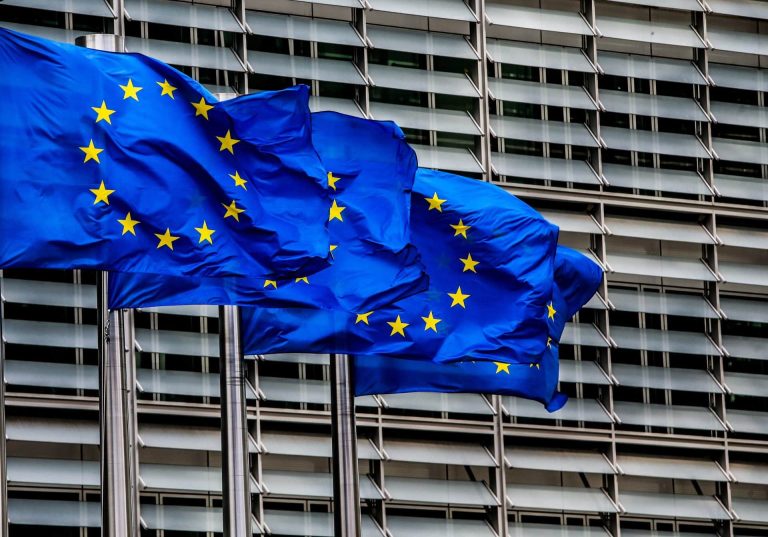9 de octubre 2024

Children of Exile: The Births “Sowing Hope” in the Camp of Nicaraguan Farmers

PUBLICIDAD 1M
PUBLICIDAD 4D
PUBLICIDAD 5D
Sanctions also remain in place for three Nicaraguan state institutions: National Police, Supreme Electoral Council, and Telcor

The Council of the European Union (EU) has extended for one more year, until October 15, 2025, its sanctions against officials and institutions of the dictatorship of Daniel Ortega and Rosario Murillo in response to human rights violations in the country.
The restrictive measures apply to a total of 21 individuals – including Murillo, the vice president and wife of Ortega, as well as three of their children – and three state entities.
The designated individuals are subject to asset freezes, and EU citizens and companies are prohibited from making funds available to them. Additionally, the individuals are subject to a travel ban, preventing them from entering or transiting through EU territories, the Council stated in a press release.
Last year, they were found responsible for “serious human rights violations or abuses” and repression against civil society, undermining democracy and the rule of law.
European Union sanctions were first introduced in October 2019 to address the deteriorating political and social situation in Nicaragua, after the Council repeatedly expressed concern about the continuous decline in human rights, democracy, and the rule of law in the country.
The EU Council reviews the restrictive measures in force annually.
On Tuesday, October 8, 2024, the EU reiterated its call for the restoration of fundamental freedoms in Nicaragua, the release of all remaining political prisoners, and the return of international human rights organizations.
It also stressed the need to end restrictions on civic spaces and respect the right to dissent.
In this context, the EU reaffirmed its “ongoing commitment to the Nicaraguan people and the defense of democracy, the rule of law, and human rights.”
“The current political crisis in Nicaragua must be resolved through genuine dialogue between the Government and the opposition,” it concluded.
Since the creation of this legal framework, the EU has sanctioned the following regime figures:
1- Rosario Murillo, vice president and first lady.
2- Juan Carlos Ortega Murillo, son of the presidential couple.
3 – Laureano Ortega Murillo, son of the presidential couple.
4 – Camila Ortega Murillo, daughter of the presidential couple.
5- Gustavo Porras, president of the National Assembly.
6- Alba Luz Ramos, president of the Supreme Court of Justice.
7- Bayardo Arce, presidential economic advisor.
8- Ana Julia Guido, attorney general.
9- Francisco Diaz, director of the National Police.
10- Luis Alberto Perez Olivas, general commissioner of the Police.
11- Justo Pastor Urbina, general commissioner of the Police.
12- Ramon Avellan, general commissioner of the Police.
13- Fidel Dominguez Alvarez, general commissioner of the Police.
14- Juan Antonio Valle Valle, general commissioner of the Police.
15- Nestor Moncada Lau, presidential advisor.
16- Sonia Castro, former health minister.
17- Luis Angel Montenegro, superintendent of Banks.
18- Nahima Janett Diaz Flores, director of Telcor.
19- Lumberto Ignacio Campbell Hooker, magistrate of the Electoral Power.
20- Brenda Isabel Rocha Chacón, president of the Electoral Power.
21- Cairo Amador Arrieta, vice president of the Electoral Power.
The three sanctioned institutions are the National Police, the Supreme Electoral Council (CSE), and the Nicaraguan Institute of Telecommunications and Postal Services (Telcor).
This article was published in Spanish in Confidencial and translated by Havana Times. To get the most relevant news from our English coverage delivered straight to your inbox, subscribe to The Dispatch.
PUBLICIDAD 3M
Confidencial es un diario digital nicaragüense, de formato multimedia, fundado por Carlos F. Chamorro en junio de 1996. Inició como un semanario impreso y hoy es un medio de referencia regional con información, análisis, entrevistas, perfiles, reportajes e investigaciones sobre Nicaragua, informando desde el exilio por la persecución política de la dictadura de Daniel Ortega y Rosario Murillo.
PUBLICIDAD 3D